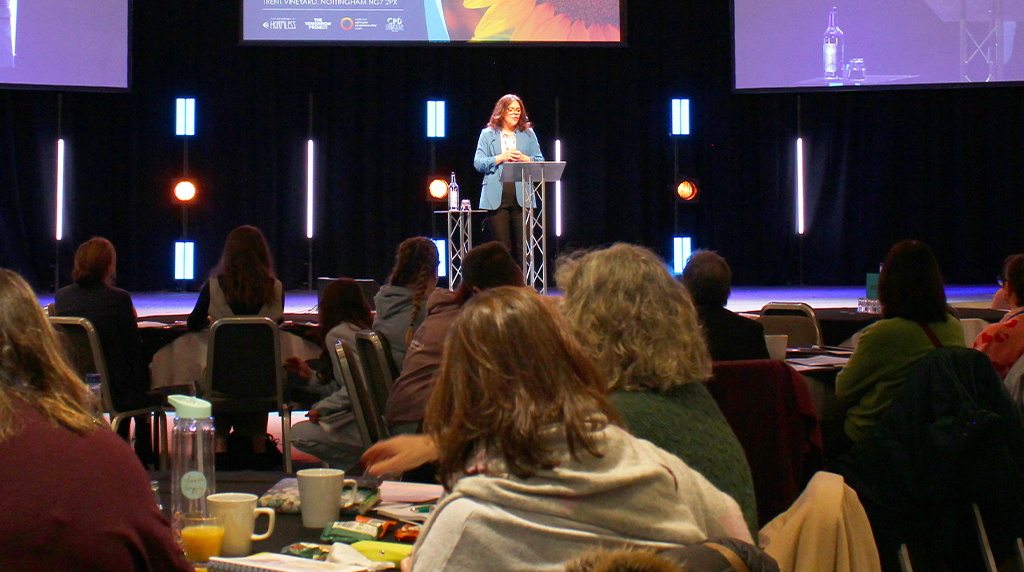By Vicky Lott (Training & Education Officer)
With World Menopause Day approaching this weekend and the launch of our brand new training course on Menopause, Mental Health and Suicide, I wanted to take this opportunity to try and dispel some of the myths and misinformation that surround this important transition.
For many years, no one seemed to want to talk about menopause, so why is the subject gaining so much attention now? Just because menopause wasn’t being discussed, doesn’t mean it wasn’t affecting women – however, it did mean women were suffering in silence without knowing what was wrong with them. Thanks to all the incredible advancements in healthcare, women are now outliving men, yet they’re spending a third of their life in poor health. We’re expecting women to retire at the same age as men but, sadly, 1 in 10 women leave the workforce due to menopause symptoms.
Heart disease is the biggest killer of women worldwide yet it’s still seen as primarily a ‘men’s disease’. The risks of heart disease increase significantly after menopause but again, it’s not really talked about. So why is this? It was only in 1993 that women were finally included in clinical trials. Prior to this date, women of child bearing age were excluded. This means that much of the medical knowledge around disease and drug treatment has been based exclusively on men and is still taught and used by clinicians today. Even now in 2025, education for GPs around the menopause varies and is sporadic unless they choose to specialise in the topic and take special interest training modules. All women will go through menopause at some point in their lives so shouldn’t we be more supported?
Many women complain that they’re not being heard or listened to when they first go to their GP with peri-menopause symptoms. They’re often dismissed, told they’re too young or that it’s just part of getting older. So women are now having to advocate for themselves and this means learning the facts before they even think about visiting their GP.
Let’s explore some things you could say when confronted with misinformation:
‘It’s just part of getting older’
I understand I’m getting older and that aging brings changes but how I’m feeling is interfering with my daily life. I’d like to discuss whether hormone fluctuations could be behind how I’m feeling and what can be done to help me feel better.
‘You’re still having periods so this can’t be menopause‘
I know I can still have periods during peri-menopause which could go on for a number of years. I’d like to look further into why I’m feeling like this and discuss peri-menopause, and whether how I’m feeling is part of that.
‘Hormones are too risky, I don’t recommend them‘
I’ve read the current research and that natural hormones are safe for most women. I’d like to talk about naturally occurring hormones that may be a good fit for me based on my personal risk factors.
Knowledge is power and by sharing our stories, our journeys and our successes we can make positive change for all women. By attending our Menopause, Mental Health and Suicide training you’ll learn to distinguish myth from fact; why it’s so important to be well informed both for yourself, family, friends, colleagues and relationships, and – building further on the points above – you’ll also learn how to advocate for yourself and those around you.
Reactions from delegates following training:
‘All the material was delivered with passion. A very interesting course on so many levels’
‘Really impressive and useful training, delivered with a lot of passion and expertise, thank you‘
‘I didn’t expect to connect with the content so deeply, but it really resonated with me. I’m now thinking about the women in my life who may have unknowingly experienced these symptoms and not attributed them to menopause’
And finally, a positive outcome for one delegate’s client:
‘…she’d thought for a while that she might be going through the menopause and had even spoken to her GP about it but was told that she’s too young. I wrote to her GP about it to advocate for them to look into it further… She’s just messaged me to let me know that her GP have contacted her and she’s due to start HRT soon‘.
You can book your place on our forthcoming Menopause, Mental Health & Suicide Prevention training via the buttons below. Courses take place online via MS Teams.

Conference Sponsorship Opportunities Still Available
On Friday 27th February 2026, Harmless will host the 11th National Self Harm & Suicide Prevention Conference – From Harm



